"Dad Was an Actor and Starred on Stage, but in His Heart, He Longed for Hashem"
Igal Sari-Levi, one of the greatest actors of the previous generation, made a full 180-degree turn, returned to complete faith, and became a narrator of righteous stories and a study partner of Rabbi Uri Zohar. Recently, after his passing, his son reflects on the journey he underwent, testifying: "Dad always longed for Hashem."
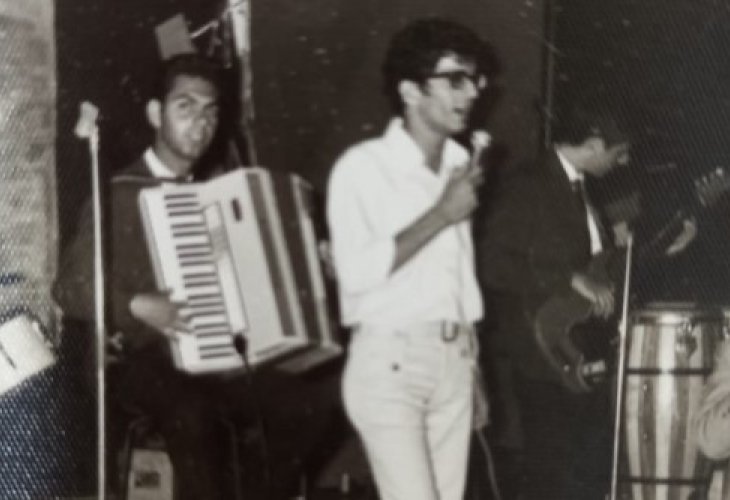
Igal Sari-Levi. Does that name ring a bell? If you ask people from the 60s and 70s, some will tell you about a successful actor who, during those years, captured stages and swept the public into his many performances. He starred as an actor at the Haifa Theater, participated in numerous entertainment programs, and seemed destined for a bright future in the field.
If you ask those from the 90s and beyond, especially among the observant community, they would tell you about a completely different Igal Sari-Levi – one who was responsible for broadcasts and stories of the righteous, as well as a popular series of tapes from "Our Sages, of Blessed Memory."
For this is, in short, the story of a man who passed away last Rosh Chodesh Adar, at age 79, after contracting COVID-19; it is the story of a man who spent his life pursuing faith and Hashem, who tried to reach out to his God, and in the last years faced significant challenges because of it; it is the story of a man who taught us through his life via storytelling, and even after his passing, his story continues to resonate.
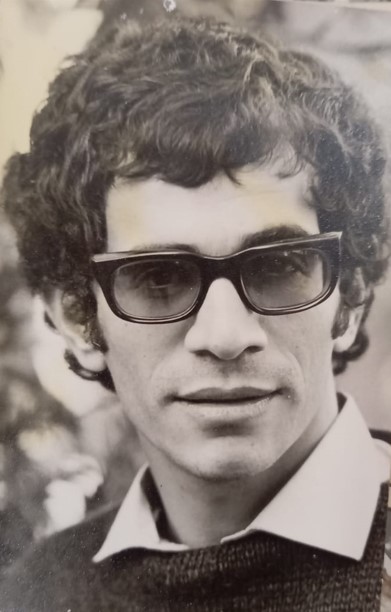
On Every Possible Stage
Igal Sari was born as the youngest in a Yemenite family, to parents who immigrated from Yemen in their youth. His son, Ori Sari, explains that in the early years, like many Yemenite families, the winds of enlightenment of the time also reached his father's family, causing some of the older siblings to abandon the Yemenite tradition and turn secular. The younger siblings were kept by the father in wisdom and intelligence, which helped them remain attached to the conservative path. It was the same for Igal until he reached adolescence, when he opened up to the theater and acting world and discovered his calling. "He was part of an experimental theater in Jerusalem, and that’s where his great success started," his son explains.
Sari enlisted in the army and served in the military band with prominent and well-known singers, such as Oshik Levy, Shlomo Nitzan, Yossi Segal, and many other names that shone in those days. "Even after he finished his military service, he continued to engage in theater and entertainment," his son continues. "To be honest, Dad never talked to us, the kids, about it, nor explained what he went through back then. Since he embraced religious observance, he was uncomfortable expanding on his secular past. But I know he was a very famous actor and entertainer, appearing in the Haifa Theater and other places. Dad once personally told me that he had higher ambitions that he couldn’t realize. According to him, when he saw he wasn’t succeeding magnificently as he aspired, this led him to return to religious observance. Conversely, during the days of mourning, people from various theaters and places where he appeared called us, and it was only then that I realized how much he starred in those days on almost every possible stage. Apparently, Dad was truly very talented, with an amazing ability to delve into characters and make people laugh. He succeeded in this from a very young age."
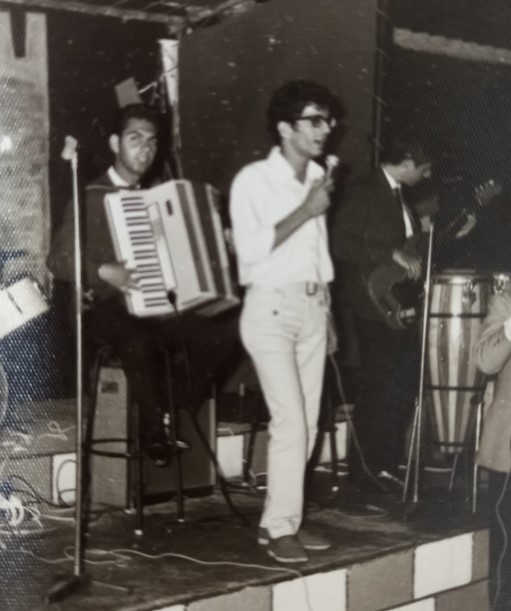
Not Missing the Performances
Sari married his wife when they were both in their late 30s, still with their secular past, and she encouraged him to act in the Khan Theater, where he became a regular actor. "Meanwhile," Ori recounts, "Dad started strengthening religiously, and Mom joined him as well. We were living in the Beit Yisrael neighborhood, which housed a group of people strengthening in faith, and Dad was one of them. They had regular study and learning sessions together. My mom says that at the same time, he also grew tired of the lifestyle surrounding the acting world. He found it hard with the joint travels with actors to all parts of the country, he didn't enjoy socializing with them or their low-level, superficial talks; they weighed on him and didn’t suit him at all."
Then did he make the transformation?
"Yes, when he was around 40, he made a significant transformation in his life and fully returned to religious observance. But it didn’t happen overnight, as although outwardly he already considered himself completely observant, it was very difficult for him to leave the profession, as he felt there was no professional future for him in the Orthodox community because, at the time, acting wasn't recognized in the sector at all. Eventually, Dad turned to Rabbi Uri Zohar, who understood him and proposed that he go into recording the tales of our sages. From that day on, Dad became a pioneer among narrators in the Orthodox community. Initially, he worked on Israel's radio and narrated stories mainly to children, and afterward, he transitioned to his life's project – recording the stories of "Our Sages, of Blessed Memory."
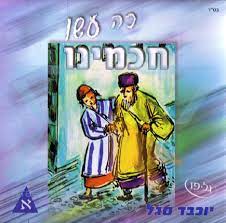
Ori recounts that during the mourning period, many quoted the post that Didia Meir published about two months before his passing, where he shared how he recently met Igal Sari-Levi, a gifted narrator and actor who recorded the stories of "Our Sages, of Blessed Memory," in his voice. "His recordings were a big hit in our house," Didia testified, "and not just ours, and I'm talking about audio tapes, right? Not video. And what’s amazing is that we actually already knew all these stories from books, but Sari breathed life into them, suddenly giving the characters voices, character, and personality. It was a captivating one-man show where he played all the characters alone. He was both Rabbi Yehuda HaNasi and the Emperor Antoninus, both Hillel the Elder and the nudnik who wants to annoy him, also Shmaya and Avtalyon, Kamza and Bar Kamza. All at a high level, without being childish, without fooling around. The series had something very serious about it that gave a lot of respect to the great stories and also to the little listeners."
How did you, as children, experience your father's recordings?
"We were full participants; we grew up with these recordings. It’s a part of the soundtrack of my childhood years, not just the recordings we were part of, but also the reality. Because my father would regularly gather the neighborhood children and tell them stories of the righteous, acting them out with them and drawing them in deeply. These were the things he loved to do most, without any reward or special stages, simply to bring young children closer and spread the stories of our sages. Later, he also recorded stories about Rabbi Nachman, intended for older ages since they are more complex stories. My father knew how to enter characters and bring them to life; that’s what was so special about him."
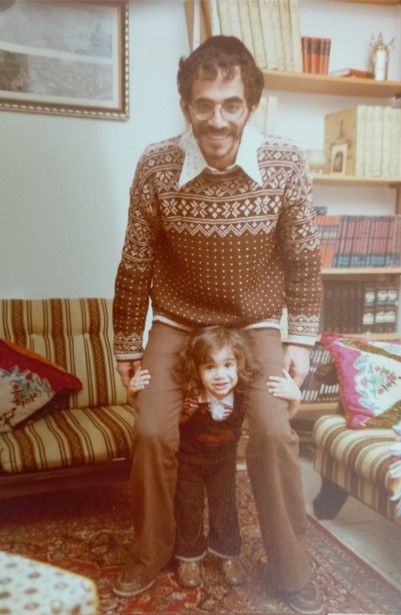
Did your father sometimes miss the world of stage and performances?
"Not at all, quite the opposite – he really despised that world. I think as he came from a home that was deeply religious and strong, he felt that by returning to religious observance, he was essentially reconnecting to his roots. Alongside this, I must point out that Dad always had the soul of an actor, with a very high level of sensitivity that helped him play characters, but it also made things difficult for him since he did everything wholeheartedly, so during difficult periods, it was very hard for him. In some years, he was ‘love-sick’ from seeking Hashem and his desire to reach the truth."
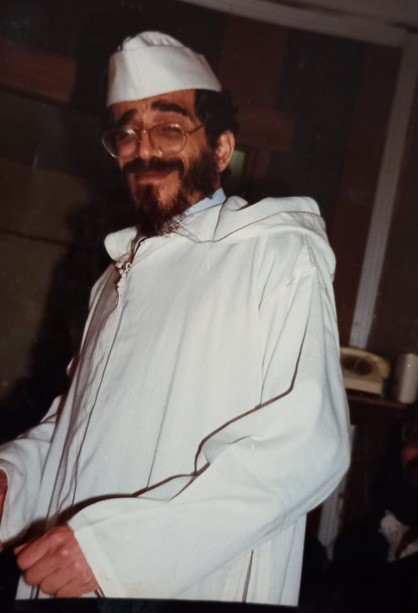
Connection Through Simplicity and Faith
Even in his later years, when his strength wasn't what it used to be, Sari continued investing in both learning and spreading joy and Judaism. "Dad studied in Aish HaTorah Yeshiva as a study partner with Rabbi Uri Zohar," his son shares, "He also participated in a rabbinical program, and there were periods when he taught various Jewish subjects as a teacher. Over the years, he also used his talents to bring joy to people, especially the sick and downtrodden in hostels and hospitals. I think there's no one in Bnei Yisrael who doesn't know Dad, and can't tell about the immense joy he always spread around him."
The son pauses for a moment and adds thoughtfully: "How symbolic that he passed away exactly on Rosh Chodesh Adar."
Is there anyone in your family who inherited the acting talent and uses it?
"We are three siblings in the family. I work with music and also in special education settings, my sister is a kindergarten teacher, and my brother is an educator and also deals with art and literature. All of us, in some way, use Dad's talents as part of our jobs. It comes naturally to us because, as children, we experienced it up close, and the field of acting was very present in our home."
Did your father want you to pursue acting as well?
"Dad never wanted us to get on stages; he didn’t see that as a life's purpose. I think in his choice to minimize speaking about his secular past, he conveyed the most important message to us – true spirituality isn’t found in the glamorous life of fame, but in family life, faith, and Judaism. Of course, one can harness their talents and use them for good things, but not be confused, and certainly not let them lead us, rather we lead them. That’s the main lesson I take from him for life – the connection to Hashem, with full simplicity and faith. Dad truly wanted so much to cleave to Hashem, and there's no doubt that he succeeded."


